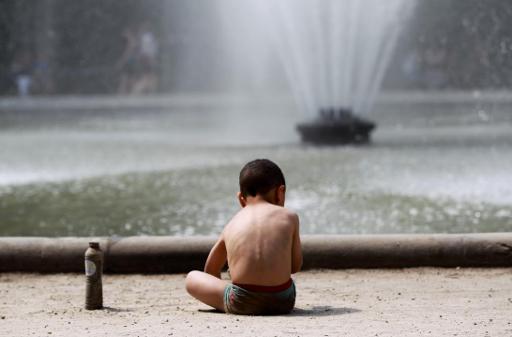Several bodies of water in the capital were contaminated last summer by a proliferation of blue algae that can be dangerous to human beings.
This information emerged from a recent reply by the Brussels environment minister Alain Maron (Ecolo) to a question from the liberal MP David Weytsman, a member of the Brussels parliament's environment committee.
Weytsman wanted an assessment of the current situation regarding data collected on the extent of the problem, and to hear the measures taken to control it.
The summer of 2019 - the hottest on record in Belgium - saw few rainy days, which gave rise to a proliferation of cyanobacteria commonly known as "blue algae."
These bacteria form micro-algal structures that grow in stagnant water. Under certain conditions, they can proliferate very rapidly and form efflorescence (or "blooms"). Some cyanobacteria produce toxins that can be dangerous to humand (there are rare cases of death) and to a greater extent to pets and animal life linked to an aquatic environment.
According to Maron, Bruxelles Environnement does not yet have the results of the three-yearly bio-monitoring for the presence of cyanobacteria in the canal and three ponds.
However, it was observed that five of the 54 bodies of water managed by Bruxelles Environnement were affected by blooms of blue algae: the Leybeek ponds (Watermael-Boitsfort); the Parc Roi Baudouin (Jette) ponds; the Pêcheries Royales (Watermael-Boitsfort); the Rouge-Cloître 3 (Auderghem) ponds; the Tercoigne (Watermael-Boitsfort) ponds.
According to the minister, the communal ponds most affected are the one in the Parc des Etangs (Anderlecht) and the middle Etang de la Pede (Anderlecht).
Maron stated that as soon as there was an identified risk of cyanobacteria proliferating, Bruxelles environnement sets up display boards giving information around the pond in order to warn users.
At the treatment level, emergency measures can be taken like draining the pond in exceptional circumstances, should public health be at risk. This measure was taken for the middle Etang de la Pede.
For its part, the Port of Brussels reported that high concentrations in the Canal at the height of the heatwave did not exceed the health threshold but this presence of blue algae was the most striking in comparison to previous summers.
Bruxelles Environnement is currently assessing the possibility of training its laboratory staff in the identification of cyanobacteria.
The Brussels Times

